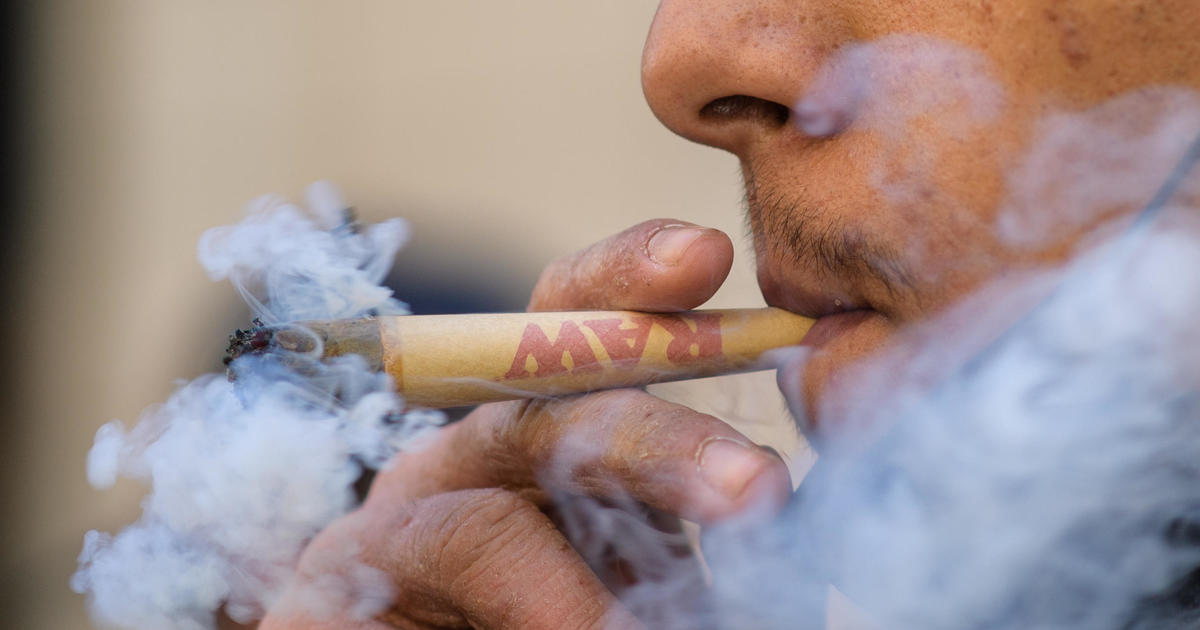Bitcoin's Rise Prompts Questions Of Who's Buying Into It
Follow CBSMIAMI.COM: Facebook | Twitter
MIAMI (CBSMiami) -- If you invested in bitcoin when it first started trading in 2010, you bought one coin for 8 cents. Today it hit $8,300.
Here's some perspective - $100 worth in 2010 would be $10.3 million today.
Where do I sign up? But before you jump in, you might want to ask who's buying this stuff and why?
CBS4 recently sat in on a finance class at Florida International University to gain insight.
Senior Alex Campo presented to the class his research on bitcoin through a PowerPoint presentation.
"Today I'm going to be talking about cryptocurrencies," he says.
The first slide is a list of the top 10 cryptocurrencies out of roughly one hundred.
Digital currency like bitcoin may be one of the biggest business stories of the year. It certainly is the most magical.
Bitcoin, a digital currency, has always been a fantasy of sorts but in the last six months, things have gotten unreal. The price someone would pay for bitcoin surpassed the price of gold in April. And it continues to skyrocket.
Today Bitcoin is worth more than UPS, Nike, and BP.
Yes, a digital coin, technically nothing, not backed by anyone, is worth more than $100 billion.
Marcos Kerbel, a professor at Florida International University, explained its remarkable rise.
"It's what we call in economics, supply and demand. Somebody has it. Somebody wants it. They'll pay for it," he says.
Kerbel is now having students present on the topic because the latest finance books are history. Bitcoin is moving that fast.
"These are topics that are not in the textbooks yet," Kerbel says.
In 2014, CBS4 did an in-depth report on bitcoin. We went to an FIU business class then as well. No one had heard of it.
In present day, it's a little different.
CBS4 reporter David Sutta asked the class, "Has anyone ever bought something or paid for something or received money by bitcoin?"
No one responded.
"Not one transaction? No one has gone to a restaurant or purchased something online with bitcoin," he followed up.
Again, there was silence.
He then asked, "Just by a show of hands how many people have ever invested in bitcoin here?"
Just two in a classroom of roughly 50 raised their hands.
In addition, they look at it as gambling.
Rigueline Joachim a senior at FIU said, "I got in at $5,500 and I only had $2,000 to invest."
Joachim made more than $2,000 dollars in just a few days. She has no plans to sell.
"I'm actually trying to hold it because by next year the prediction is bitcoin is supposed to reach about $10,000," she said.
Joachim is the exception.
Most young people though are like Alex Campo, who was making the presentation. When asked if he has purchased bitcoin he said no.
But why?
"Too speculative. Too volatile," he responded.
And boy is it volatile.
Two weeks ago, over a weekend, it dropped 18%.
Why? Who knows? Sutta asked Campo, who delved deep into the subject, whether there is a bitcoin headquarters that people can call, that you could email?
To that, Campo said, "Absolutely not."
Who operates Bitcoin?
"There is no central authority," Campo replied.
The reality is there is a lot we do not know about it, like who is buying and selling it.
"I can't see any patterns. I'm assuming it's the younger generations' right," Campo said.
Yet in a finance classroom, those who would likely know the most about it are not using it. Certainly, their parents are not using it.
You cannot buy it at Wells Fargo or invest your 401k in it.
This led us to look at who would want bitcoin? It is instant. It is anonymous. It is doubling its value overnight.
Kerbel believes bitcoin's days are numbered.
"The regulators are very concerned about it, because right now in order to combat money laundering and terrorist financing, we need to know who are the players behind it," said Kerbel.
If, or when, the government steps in bitcoin may be reduced to bits.
"Whoever comes in last will lose," Kerbel said.
For now, the bitcoin rises and while they are not investing or using it, our classroom believes in it.
When asked whether it is a disrupter like an Uber for the taxicab industry or a fad the class collective responds "disrupter."
For this story, reporter David Sutta bought bitcoin in September - about $250 worth.
The process was technically difficult and he ended up using a commercial service. It was far from anonymous. Sutta had to send them a copy of his driver's license. Moreover, it was not cheap after transaction fees.
It was further proof that bitcoin is no longer considered a currency. It is an investment, like stocks or mutual funds. Except you are not buying a piece of anything real.
David sold the bitcoin he purchased in November for $500. He essentially doubled his money.
Again, it's important to point out this works like the stock market. Someone out there was willing to buy a digital piece of nothing for double what he paid.
The reason is they believe it could be worth more somewhere down the line. So far, that's been the case.
But if younger generations are not buying this then who is?
Part of this could be illegal activity like drug trafficking and money laundering, but this latest rise really appears to do with desperate economies.
A big indicator is the weekly volume chart, which gives you an idea of how many bitcoin transactions took place in the last week. Every time you buy or sell that's considered a transaction.
In the United States, we are trading about 11 million times a week. When you look at Russia, they're trading about 900 million times a week. Colombia and Iran are in the billions and Venezuela is at 130 billion transactions this week.
Venezuela's economy is a free fall right now. Inflation is skyrocketing. What you are seeing is Venezuelans putting their money in bitcoin to hold value, but you have to remember this is traded globally and there is only 16 million bitcoins out there.
This means supply and demand is driving the price up.
Sutta suspects white-collar criminals are taking advantage of the situation too and pumping up the price.



